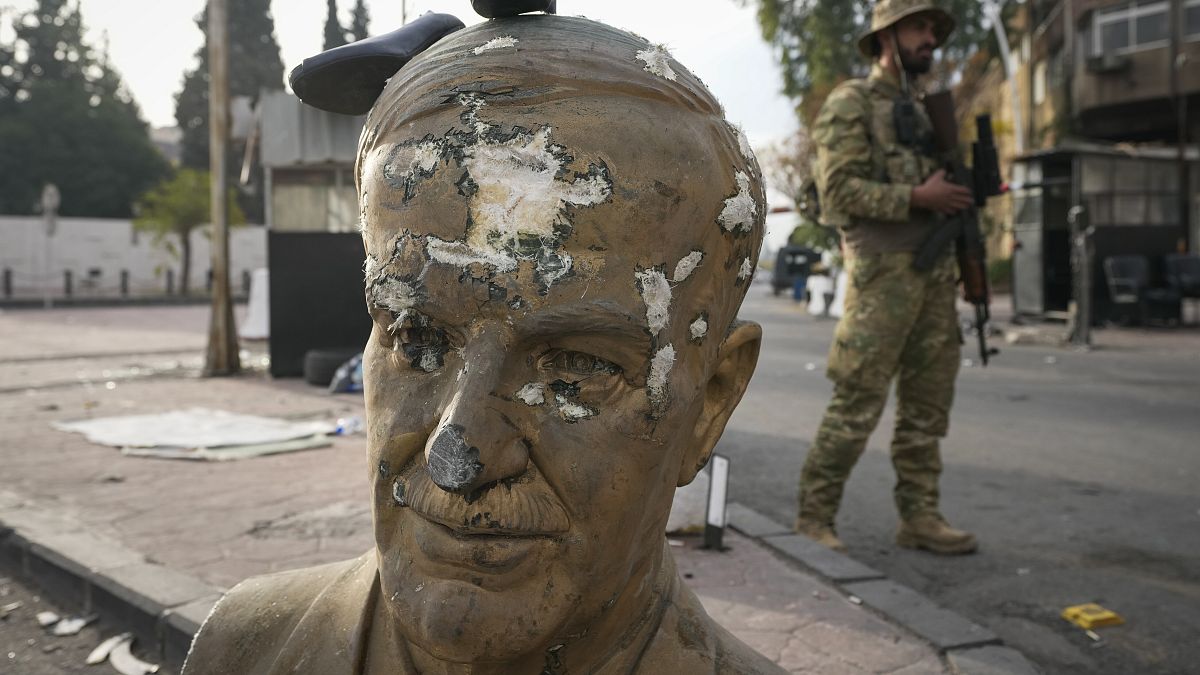Since five decades of brutal dynastic dictatorship came to an end on Sunday, statues of Hafez al-Assad and his son and successor Bashar have been toppled across Syria.
The tomb of the former Syrian dictator Hafez al-Assad has been set alight, according to numerous reports, just days after an uprising swept his son Bashar from power.
Images taken from Qardaha, the ancestral village of the al-Assad family in the western province of Latakia, appear to show part of the mausoleum — and a coffin — on fire.
The presidential palace was looted on Sunday, while statues of the Assad family have been toppled across the country.
The dramatic scenes come three days after rebels led by the Islamist group Hayat Tahrir al-Sham (HTS) seized the capital, Damascus, following the withdrawal of the Syrian army and Bashar al-Assad’s escape into exile.
The elder al-Assad ruled the country with an iron fist for three decades after taking power in a coup in 1970, remaining in power until he died from a heart attack in 2000. During his repressive rule, his forces routinely went after his political opponents.
Upon his death he was succeeded by his son Bashar, who had previously worked as an ophthalmologist in London.
It was after Bashar al-Assad clamped down violently on protesters in 2011 that Syria was plunged into a 13-year civil war, in the course of which 500,000 people are thought to have been killed. Millions of Syrians have gone into exile.
The current al-Assad, who has enjoyed the backing and military support of both Russia and Iran, has controlled much of the country since his forces seized Aleppo, the country’s second largest city, from the opposition in 2016.
His quick demise as dictator came as a shock after the lightning rebel offensive that began in north-west Syria in late November. Opposition fighters first took Aleppo, before seizing Hama and Homs on their journey down to Damascus.
With al-Assad gone, Syrians at home and abroad have been celebrating the end of his bloody regime.
However, their joy has been laced with sadness, with many coming to terms with the fact that their relatives —who disappeared during al-Assad’s rule and who have not reappeared since his regime’s infamously harsh prisons were liberated — might not be coming back.

